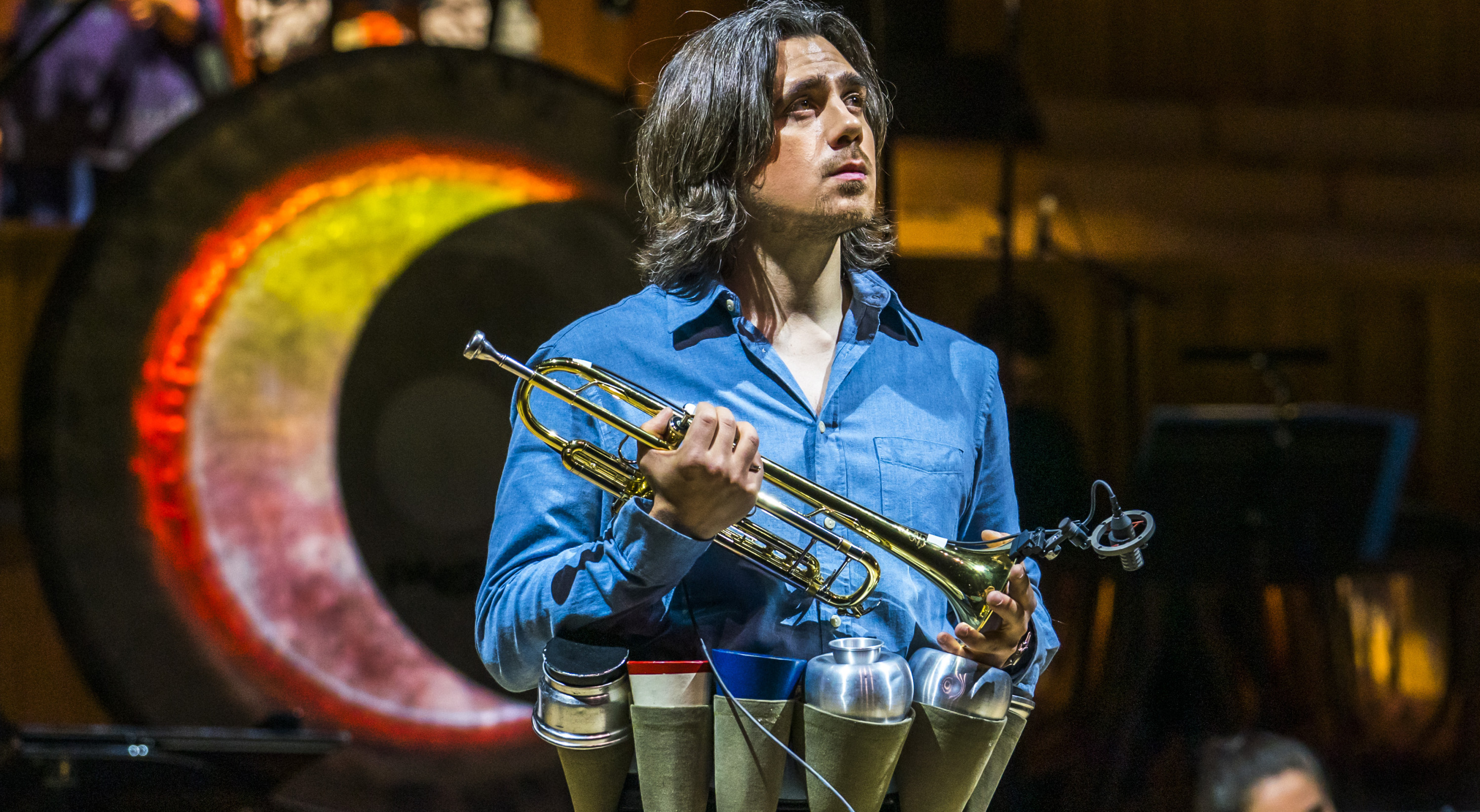Music, libretto, actions and gestures Karlheinz Stockhausen. Direction Maxime Pascal. Stage director Benjamin Lazar. Assistant stage director Elizabeth Calleo. Set design and costumes Adeline Caron. Lighting Christophe Naillet. Computer music Augustin Muller. Sound projection Florent Derex. Video creation Yann Chapotel. Vocal conductor Alain Muller. Choir director Richard Wilberforce.
Safir Behloul, tenor - Michaël.
Henri Deléger, trumpet - Michaël.
Emmanuelle Grach, dance - Michaël.
Élise Chauvin, soprano - Eve.
Iris Zerdoud, basset-horn - Eve.
Suzanne Meyer, dance - Eve.
Damien Pass, bass - Lucifer.
Mathieu Adam, trombone - Lucifer.
Frank Gyzicki, dance - Lucifer.
Bernadette Le Saché - An old lady.
Le Balcon. Students from the Paris Conservatoire. Students of the Pôle Sup'93. The Jeune Chœur de Paris. The Impromptu Orchestra.
Coproduction Le Balcon; Conservatoire national supérieur de musique et de danse de Paris; Pôle Sup'93; Philharmonie de Paris
Adaptation of the production Théâtre National de l'Opéra-Comique; Opéra national de Bordeaux; Le Balcon (2018)
The Philharmonie de Paris and the Festival d'Automne à Paris are co-producing this show.
Stockhausen Conference.
Listen on France Culture
Listening key
Saturday 26 October at 6.45pm, listening session in the Philharmonie conference room before the opera.
See more
Donnerstag (Thursday), the first opera of the Licht (Light) cycle, to which Karlheinz Stockhausen devoted twenty-five years of his life, is the day of Archangel Michael, his youth, journey around the earth and his return. It is also an autobiographical moment in time, overwhelmingly so, in a spiral that leads to the stars and the harmony of the universe.
The third act of Donnerstag is divided into two scenes. Throughout Festival, the first of them, as Michael enters in a triple form into his celestial residence, Eve greets him bearing three gifts (three plants, three compositions of light and the terrestrial globe, "in memory of his journey on earth"), and Lucifer starts an argument with the archangel, invisible Choirs sing verses from three intertestamental writings: the Testament of Moses, the Syriac Apocalypse of Baruch and the Testament of Levi. Stockhausen was passionate about their poetic qualities, the esotericism of their words and their symbolization of the end of time, before the advent of light, peace and eternal joy. In Vision, the second scene, by means of seven shadow effects and seven words the initials of which make up his name, the many moments in Michael’s life appear before him, up until the ecstasy in the ascension and the resurrection on his return, at the end of which a wondrous arc of light reappears. In Stockhausen's own, prophetic words “I am the one who listens”.
See also
In the same place

